Like other professional contexts, the early childhood setting too, comes with its own set of pressures and anxieties. Mindfulness can be an excellent way for Educators not only to find their own calm but also to teach children valuable lessons on de-stressing and self-regulation. The following article provides information on What Is Mindfulness, How It Can Help Educators, How It Can Help Children and more.
What Is Mindfulness
Pared down to its simplest, mindfulness is a way of being aware of the present through your thoughts and sensations without any judgment or interpretation. Some essential traits of practising mindfulness then are:
- Noticing sensory inputs like sounds, textures, and smells around you at the present moment
- Letting your mind be aware of the here and now, instead of ranging into the past or future
- Allowing thoughts and feelings without labelling them good or bad or assigning meanings such as failure, regret, rejection and so on
How It Can Help Educators
- The most important and immediate benefit of mindfulness for educators is as a de-stressing technique. When you are feeling harried or frustrated, even a few minutes of mindfulness meditation can reduce anxiety symptoms like elevated heart-heart, rapid breathing or increased sweating.
- Yet another way that mindfulness helps is by clarifying anxious situations and helping the mind focus on what is essential; this filters out unnecessary details and unhelpful emotions so that you can make conscious choices about where to place your attention.
- In the long run, mindfulness helps you to regulate your emotions better and thereby respond to your young learners in a calm, consistent manner. Children, in turn, are able to “download” your calm and know that they will find in you a wellspring of stable and secure guidance.
How It Can Help Children
New research suggests that mindfulness may be particularly beneficial for children. As the brain develops fastest in early childhood, mindfulness – by practising focus and cognitive control – can strengthen skills like self-regulation, judgment and patience during childhood.
Best of all, practising mindfulness creates the foundation of other self-regulation habits in children that can help them manage their emotions and shape positive behaviours in adulthood.
The most immediate benefit of mindfulness though is to help learners calm down in tense or disruptive situations in a classroom. Practising it yourself and modelling is the best way to get them to learn mindfulness. You can also teach the S.T.O.P technique which involves
- stopping whatever you are doing
- taking a deep, slow breath to ease tension in the body
- observing or just noticing whatever is happening around or in your body
- proceeding with whatever you were doing, after having anchored yourself, however briefly, to the present
Finally include mindfulness in the daily classroom routine rather than using it as reactive to anxious or disruptive episodes; this will help children to avoid negative associations and instead perceive it as an essential life skill.
Further Reading
Chakra Posters - The Chakra Posters provide information on the 7 main chakras, what they are and explanations for each. Chakras are an area in the body connected with life energy. A chakra vitalizes a physical body and is associated with interactions of a physical or mental nature.
Benefits Of Yoga For Children - The following provides on What Is Yoga, Benefits Of Yoga and more.
Pattern Posters - Pattern Posters can be used as a calming down technique for children when they are feeling overwhelmed. Children can trace the pattern with their fingers or use stones to place along the pattern to help them focus when they are unsettled. These can also be used with playdough as well. These are a great addition to add to a Calming Corner.
Yoga Asanas For Children - The following are easy yoga asanas that will benefit children and help them to remain healthy.
Reference:
Mindfulness In Children, New York Times


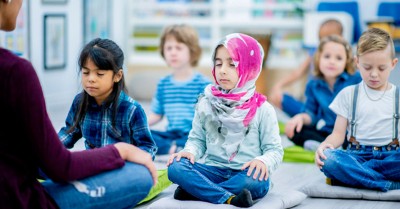
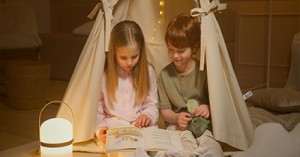
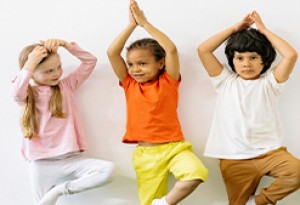
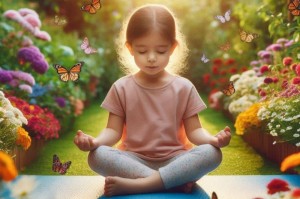
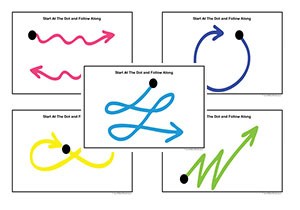
 As an Educator in Australia, your pay rate falls under the Children’s Services Award 2010. This award states the minimum amount that an employer can
As an Educator in Australia, your pay rate falls under the Children’s Services Award 2010. This award states the minimum amount that an employer can When working as a qualified Early Childhood Teacher (with a university degree) within a service, your rate of pay will come from the Educational Services
When working as a qualified Early Childhood Teacher (with a university degree) within a service, your rate of pay will come from the Educational Services When working as a Diploma Qualified Educator your pay rate is from the Children's Services Award 2010. This Award states your minimum rate of pay
When working as a Diploma Qualified Educator your pay rate is from the Children's Services Award 2010. This Award states your minimum rate of pay When working as a Cert 3 Qualified Educator, your pay rate is from the Children's Services Award 2010. This Award states your minimum rate of
When working as a Cert 3 Qualified Educator, your pay rate is from the Children's Services Award 2010. This Award states your minimum rate of Educational Leaders play a crucial role in their early childhood service by ensuring that the educational program aligns with best practices and supports the holistic
Educational Leaders play a crucial role in their early childhood service by ensuring that the educational program aligns with best practices and supports the holistic In early childhood education and care, ratios are more than a technicality—they are a frontline safeguard. Every child deserves responsive supervision, emotional connection, and developmental
In early childhood education and care, ratios are more than a technicality—they are a frontline safeguard. Every child deserves responsive supervision, emotional connection, and developmental With the new national child safety reforms kicking in on 1 September 2025, early childhood services like yours have a real opportunity to lead the
With the new national child safety reforms kicking in on 1 September 2025, early childhood services like yours have a real opportunity to lead the Here’s a comprehensive Mobile Phone and Smart Watch Policy tailored for early childhood education and care (ECEC) services in Australia, aligned with the latest 2025
Here’s a comprehensive Mobile Phone and Smart Watch Policy tailored for early childhood education and care (ECEC) services in Australia, aligned with the latest 2025 The Sea of Fish Challenge is a national initiative that invites children, educators, families, and communities to create and display fish artworks as a symbol
The Sea of Fish Challenge is a national initiative that invites children, educators, families, and communities to create and display fish artworks as a symbol Across the early childhood education and care sector, educators are sounding the alarm: current staffing ratios are insufficient to deliver safe, meaningful, and developmentally appropriate
Across the early childhood education and care sector, educators are sounding the alarm: current staffing ratios are insufficient to deliver safe, meaningful, and developmentally appropriate


